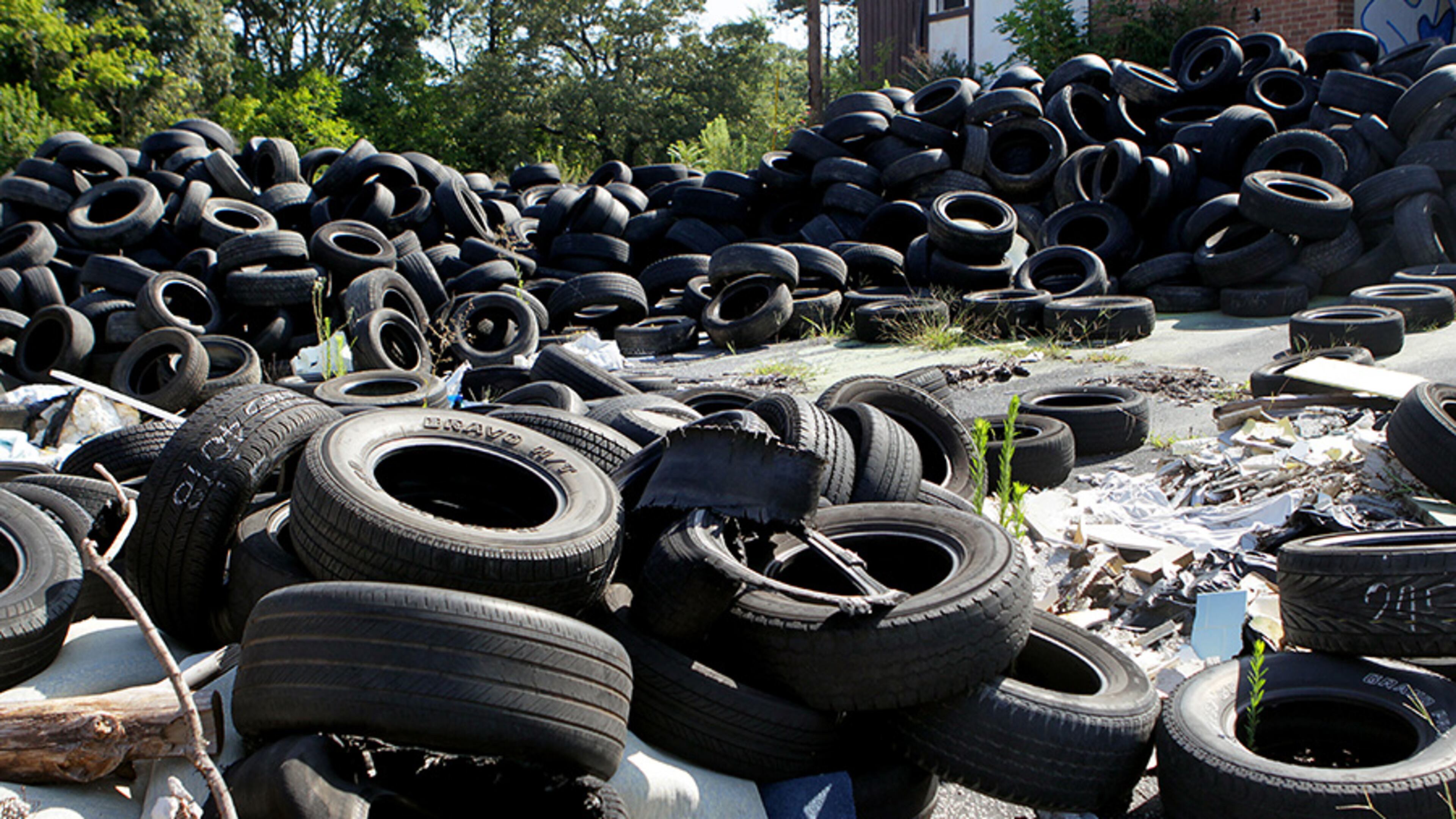Regulators may not allow more tire burning for electricity after all

The main proponent of a change approved by Georgia’s utility regulators that could allow some biomass plants in the state to burn scrap tires now wants to roll back the decision — at least for now.
District 1 Commissioner Jason Shaw (R-Lakeland), one of the five elected members of the Georgia Public Service Commission (PSC), said in a statement released late Wednesday that he will ask his fellow commissioners to vacate their recent order. He also signaled that the PSC is likely to hold hearings on the subject in the future.
“We always want to ensure everyone feels they have been heard,” Shaw said.
Shaw’s request to reverse the order came one day after The Atlanta Journal-Constitution reported on the policy change, which has drawn sharp criticism from environmental groups concerned about pollution impacts.
Last month, Shaw proposed several motions expanding the list of fuels biomass plants can burn to include scrap tires and natural gas. They also capped the amount of tires that could be added to the mix at 20% of the facility’s total heat input. The changes passed with a 4-to-1 vote, with Chairman Tricia Pridemore the lone dissenter, and were finalized on April 21.
Late last month, the Southern Environmental Law Center (SELC) and the Sierra Club formally petitioned the commission asking it to revoke its order.
The groups argued that the commission’s moves were unlawful because the changes were made without providing 30 days’ notice to interested parties or allow public hearings before a vote. They also claimed that the PSC failed to show that allowing electricity to be generated by burning tires was in the public interest.
Jennifer Whitfield, a senior attorney at the Southern Environmental Law Center representing Georgia Interfaith Power & Light and the Partnership for Southern Equity in the proceeding, praised Commissioner Shaw’s reversal.
“The biomass industry can’t cut corners to burn tires, so we greatly appreciate Commissioner Shaw’s willingness to revisit the issue, and we hope he and Chairman Pridemore are able to gain the support of the remaining commissioners,” Whitfield said. “Decisions about our energy future are too important to be decided without the full participation of the public.”
The federal Environmental Protection Agency (EPA) recognizes scrap tires as a viable alternative to fossil fuels or as a supplement to burning coal or wood.
Tire remnants are already burned in at least one biomass-to-electricity plant run by a company called Green Power Solutions in Dublin, southeast of Macon. Tires are also used as fuel in some industrial manufacturing facilities that require lots of heat, like cement kilns.
Biomass power plants produce electricity by burning organic material like wood pellets, timber scraps and other plant matter in boilers to produce steam. While the fuel is widely used as power source in Europe, Georgia Power’s long-range energy plans require the utility to purchase more electricity from biomass facilities in the years ahead.
Burning biomass is generally considered more climate-friendly than fossil fuels like coal or natural gas, but some climate scientists have warned it’s not as clean a fuel as advertised.
At a commission meeting held in March, biomass industry representatives requested the changes, claiming that adding biomass to their fuel mix would allow them to generate more consistent electricity and cut costs.
Only new facilities that are selected through a bidding process to fill Georgia Power’s biomass demands would be affected by the change. But even Georgia Power has said it is not in favor of burning tire scraps.
In his statement, Shaw indicated that the commission would likely take a vote to officially rescind the order in the coming weeks, but no specific date was given. Still, it may not be the end of the movement to allow tire scraps to be burned in Georgia biomass facilities.
If hearings are held on the subject, commissioners could then potentially vote on reinstating some or all of the rule changes.
A note of disclosure
This coverage is supported by a partnership with 1Earth Fund, the Kendeda Fund and Journalism Funding Partners. You can learn more and support our climate reporting by donating at ajc.com/donate/climate/


